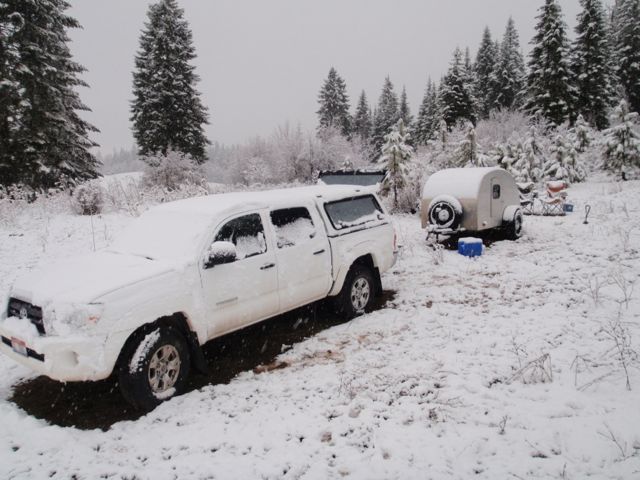Condensation questions
24 posts
• Page 1 of 2 • 1, 2
Condensation questions
I did some searching and cant find good solid assurance on my issue, which Im sure is a common issue.
I slept in the camper last night to test the adequacy of my heater buddy since its been cold lately. Lots of condensation, but only on the walls and doors which are 3-4" birch plywood with a spar varnish (2 coats, no sanding between coats, except on the doors. The doors are extremely smooth)
Is this something I need to worry about. Can I simply wipe the walls down, getting most of it off and let it air out. Its humid as hell so Im sure it wont air out in this weather. Is there a way to prevent it in the 1st place. Cloth layers, dehumidifier, extra ventilation.... How will the spar varnish hold up. Any help is appreciated
I slept in the camper last night to test the adequacy of my heater buddy since its been cold lately. Lots of condensation, but only on the walls and doors which are 3-4" birch plywood with a spar varnish (2 coats, no sanding between coats, except on the doors. The doors are extremely smooth)
Is this something I need to worry about. Can I simply wipe the walls down, getting most of it off and let it air out. Its humid as hell so Im sure it wont air out in this weather. Is there a way to prevent it in the 1st place. Cloth layers, dehumidifier, extra ventilation.... How will the spar varnish hold up. Any help is appreciated
- kd5edj63
- Teardrop Master
- Posts: 130
- Joined: Fri Oct 04, 2013 3:17 pm
Re: Condensation questions
Im wondering if a couple of these might do the trick  great reviews
great reviews 
http://www.amazon.com/Eva-dry-Renewable ... ewpoints=1
 great reviews
great reviews 
http://www.amazon.com/Eva-dry-Renewable ... ewpoints=1
Last edited by kd5edj63 on Sun Nov 24, 2013 1:13 pm, edited 1 time in total.
- kd5edj63
- Teardrop Master
- Posts: 130
- Joined: Fri Oct 04, 2013 3:17 pm





